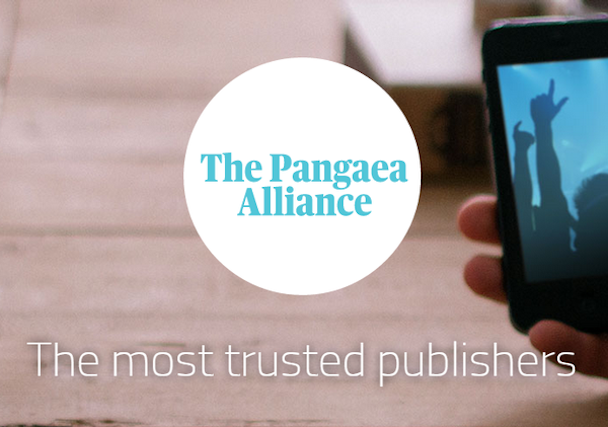Rubicon Project loses Pangaea relationship as part of its Guardian legal dispute
Following on from its legal dispute with The Guardian, Rubicon Project has also witnessed the end of its relationship with The Pangaea Alliance, a co-operative consisting of both UK-based and trans-Atlantic including: CNN International; Dennis Publishing’s Alphr; The Economist, FT; Inc; The Economist, and Reuters.

Rubicon Project had powered Pangaea since 2015
Rubicon Project helped launch the initiative, which gives advertisers the ability to access display and native advertising across the alliance using the adtech outfit’s platform, thus opening up the premium publishers’ inventory across APAC, Europe, the Middle East, and North America.
It remains unclear what the breakdown in relationship between Rubicon Project and the publisher alliance means for the ongoing operations of Pangaea. However, the alliance will temporally be run from a "managed service" while it decides what to do next.
"The Pangaea Alliance is temporarily moving to a managed service offering as we review our programmatic tech solutions," said a spokesman for the Pangaea Alliance. "During this time new business, and any existing campaigns, running through the open or private marketplace can be booked directly with Pangaea to reach a large, quality audience across key markets."
A spokesman for Rubicon confirmed that its relationship with Pangaea had been severed as of last month but that it will continue to work directly with a number of the member publishers.
His statement read: “The Guardian was an active customer of Rubicon Project until it filed its claim on March 13, 2017, which resulted in the termination of our relationship with Pangaea.”
With regards to the earlier legal dispute between The Guardian and the adtech outfit, The Rubicon spokesperson went on to add:
“The Guardian’s claims amount to a contract dispute, which we will vigorously contest in court. We continue to work directly with the other members of the alliance who are existing and longstanding customers of Rubicon Project.”
Ironically, Pangaea had been formed to help allay advertisers’ concerns about the “black box” of programmatic spending, guaranteeing their creative will appear alongside trusted, quality content, and giving them access to the first-party data of all the publisher partners.
However, since the launch of the publisher consortium in 2015, The Guardian has lodged a legal complaint with Rubicon, claiming that it it had failed to disclose fees earned from advertisers that appeared on the publisher’s site.
Neither party concerned has yet to comment much further publicly on the proceedings. Although, it is understood that The Guardian had grown wary of just how much money it was losing to adtech vendors after it conducted earlier experiments to use programmatic media buying tools to purchase its own inventory; the result being that only 30% of the original spend made its way back to the publisher.
Rubicon Project has defended itself, claiming that the "aggregate fees we charge represent the value for our services and are in line with industry practice" and has explained how "we split our fees between sellers and buyers, reflecting the value we provide to both".
It went on to say: “We charge buyer fees for certain services we provide and have disclosed that fact publicly, including in our SEC filings, and in client contracts, including a contract we signed with Guardian over a year ago.”
Additional reporting by Ronan Shields

